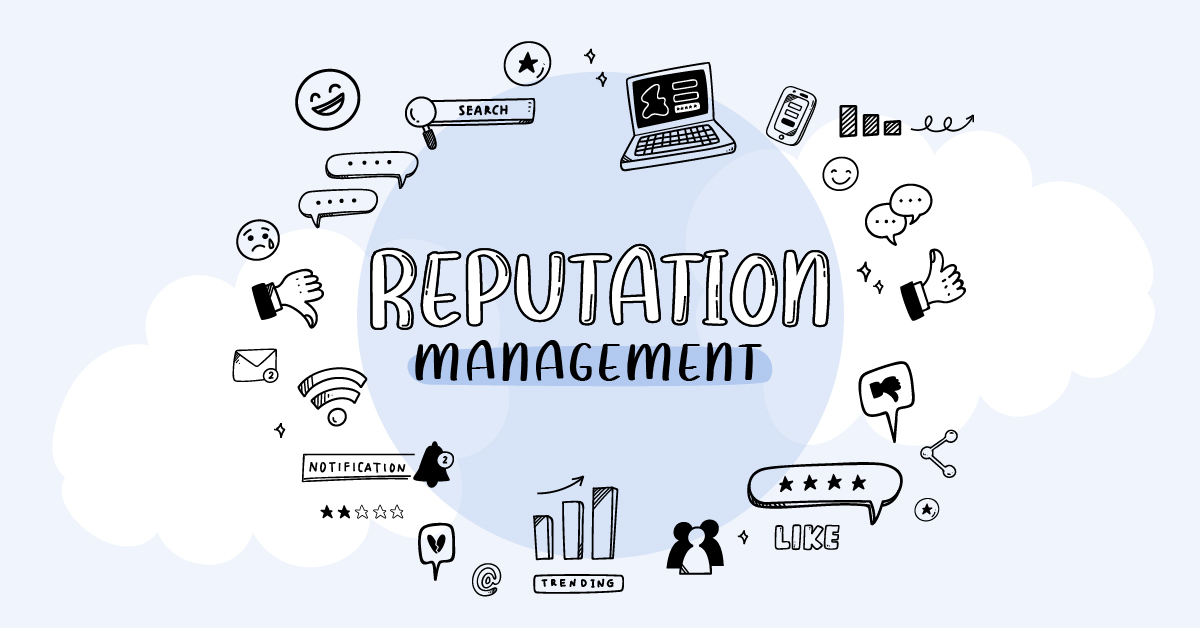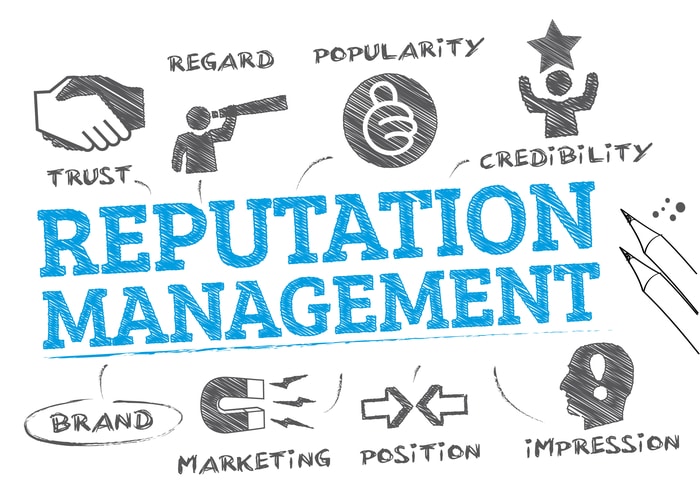Reputation Management Basics: Preserving Your Digital Picture
Reputation Management Basics: Preserving Your Digital Picture
Blog Article
From Situation to Opportunity: Leveraging Reputation Administration in Times of Misfortune
In today's busy and interconnected world, companies and individuals encounter the continuous threat of dilemmas and difficulties that can possibly harm their hard-earned track record. In this discussion, we will explore the art of leveraging online reputation administration during times of crisis, supplying insights and approaches that can change a difficult scenario right into a tipping stone for success.
Understanding Online Reputation Management
Recognizing reputation administration is crucial for individuals and companies seeking to keep a positive public photo and minimize potential damage in times of misfortune. Track record monitoring incorporates the tactics and approaches used to form, keep, and shield a person's or company's reputation (Reputation Management). It includes proactively monitoring what is being stated concerning the specific or company, both online and offline, and reacting suitably to any harmful or negative details
In today's digital age, where information spreads swiftly and can have a long-term influence, online reputation monitoring has actually become also more important. Social media site platforms, on the internet testimonial sites, and news electrical outlets can promptly enhance any adverse publicity or criticism, possibly causing significant injury to a person's or company's track record. By understanding online reputation management, people and businesses can efficiently browse these challenges and proactively deal with any problems that may occur.
Key parts of track record administration include checking on the internet evaluates and states, engaging with customers or stakeholders, addressing unfavorable responses or criticism in a specialist and prompt way, and actively taking care of on the internet accounts and content. In addition, people and businesses must strive to build a strong reputation by delivering on promises, offering superb customer support, and participating in ethical techniques.
Identifying Hardships and Situation Scenarios

To determine these difficulties and dilemma circumstances, companies need to develop a robust tracking and very early warning system. This involves proactively monitoring traditional media, social media sites systems, on the internet forums, and other relevant resources for any adverse conversations or possible dangers related to the company. Reputation Management. By remaining attentive and proactive, companies can promptly discover and react to arising concerns, avoiding them from spiraling uncontrollable
In addition, organizations must additionally perform routine danger assessments to determine possible vulnerabilities and powerlessness in their procedures. This enables them to develop backup strategies and methods to attend to dilemmas successfully when they do happen. By being prepared and positive in recognizing adversities and crisis circumstances, organizations can much better safeguard their online reputation, keep stakeholder trust fund, and ultimately transform difficulty right into possibility.
Structure a Situation Feedback Method
Developing a reliable dilemma response approach is vital for organizations to effectively navigate via hardship and shield their reputation. In times of crisis, companies must be prepared to react promptly and effectively to alleviate the influence on their stakeholders and maintain public trust. Constructing a crisis feedback strategy involves several key actions.
First of all, companies require to develop a dilemma monitoring team included vital people view it from different divisions. This team needs to be liable for carrying out the situation and creating response plan. They need to have a clear understanding of the company's values, goals, and vital stakeholders.
Secondly, organizations must carry out a complete danger analysis to recognize prospective situations that can happen and analyze their potential effect. This includes analyzing internal and exterior variables that could bring about a dilemma, such as functional interruptions, financial issues, or reputational threats.
Next, companies should develop a communication strategy that details how they will interact with their stakeholders throughout a situation. This strategy must include clear and constant messaging, in addition to networks and platforms to reach different audiences.
Additionally, organizations ought to develop methods for tracking and examining the crisis response method. This consists of consistently assessing and updating the plan to ensure its effectiveness and making essential changes based on lessons gained from previous crises.

Making Use Of Social Media Site in Track Record Administration
Social network has actually become an essential device for organizations in handling their reputation during times of difficulty. With the surge of social networking platforms such as Facebook, Twitter, and Instagram, companies now have the chance to straight involve with their stakeholders and resolve any problems or concerns that might emerge.
During times of situation, social media permits companies to rapidly share information, provide updates, and connect their side of the story. By actively joining social networks discussions, organizations can monitor public view, address misinformation, and show openness and responsibility.
Among the vital advantages of using social networks in credibility management is the capacity to get to a huge target market in real-time - Reputation Management. With social networks systems, companies can engage with stakeholders from all over the globe, despite geographical borders. This enables them to not only manage their online reputation locally yet also on a worldwide range
An additional benefit of using social media is the interactive nature of these platforms. Organizations can actively pay attention to their audience, reply to their issues, and show a readiness to settle problems. This degree of involvement helps construct trust fund and reputation, which are critical for credibility management.
However, it is very important for organizations to approach social networks with caution. Errors or inappropriate reactions can swiftly escalate a dilemma and more damage the company's online reputation. For that reason, it is essential for organizations to have a well-defined social media sites approach in place, with clear standards on just how to address situation scenarios.
Transforming Crisis Into Possibility: Case Studies
A number of companies have efficiently transformed crises right into chances by Go Here successfully managing their track record and implementing tactical actions. These case researches highlight the value of aggressive reputation monitoring throughout times of misfortune.
One such instance research is the Tylenol situation in 1982. When 7 individuals died after taking in cyanide-laced Tylenol capsules, Johnson & Johnson took instant activity to secure its reputation. The company promptly remembered 31 million containers of Tylenol, reestablished the item with tamper-proof packaging, and carried out a transparent interaction strategy. By focusing on customer safety and openly attending to the situation, Johnson & Johnson not only gained back customer depend on but also established brand-new industry requirements for item security.
An additional noteworthy instance is the Domino's Pizza dilemma Check This Out in 2009. In response, Domino's quickly apologized and launched a comprehensive online campaign to resolve the crisis.
These study demonstrate the relevance of quick activity, openness, and efficient interaction subsequently situations right into possibilities. By effectively handling their online reputation and applying tactical activities, organizations can not just minimize the negative effects of a crisis however likewise emerge stronger and more resilient.
Conclusion
Leveraging social media as a tool in credibility monitoring can even more enhance companies' ability to deal with situations and interact with stakeholders. With proactive and strategic reputation monitoring, crises can be turned right into chances for growth and renovation.
By being prepared and aggressive in determining adversities and situation scenarios, organizations can better secure their online reputation, keep stakeholder trust fund, and eventually turn adversity right into chance.
Establishing an effective situation reaction method is critical for organizations to effectively browse via misfortune and protect their track record. Bad moves or improper actions can promptly escalate a situation and more damage the organization's online reputation. Leveraging social media as a device in credibility management can additionally improve organizations' capacity to address situations and interact with stakeholders. With critical and positive online reputation monitoring, crises can be transformed right into opportunities for development and enhancement.
Report this page